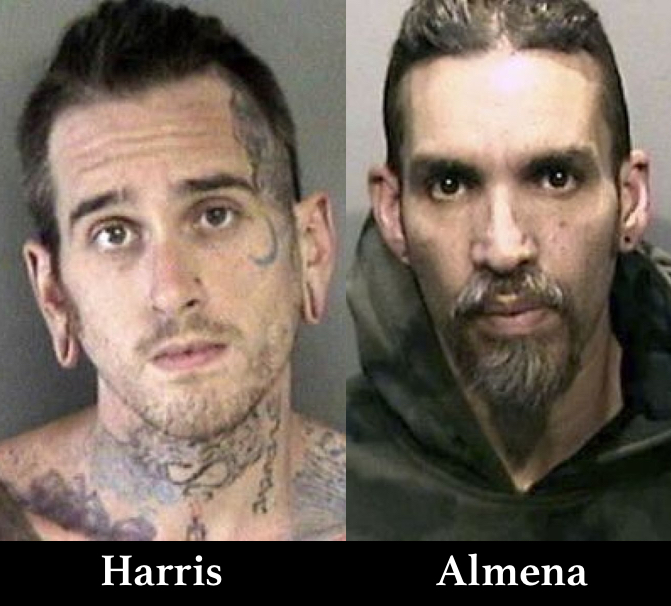An Alameda County prosecutor told jurors on Monday that lies by Ghost Ship warehouse master tenant Derick Almena and creative director Max Harris show that they knew what they were doing at the Oakland building where 36 people died in 2016 was wrong.
In his closing argument in the trial of Almena, 49, and Harris, 29, on 36 counts of involuntary manslaughter for the blaze at the warehouse late on the night of Dec. 2, 2016, prosecutor Autrey James said the two men’s lies to authorities that no one was living at the 10,000-square-foot warehouse in the 1300 block of Oakland’s Fruitvale district “shows their consciousness of guilt.”
The two men’s lies to authorities that no one was living at the 10,000-square-foot warehouse in the 1300 block of Oakland’s Fruitvale district “shows their consciousness of guilt.”
Prosecutor Autrey James
James said Almena and Harris should have known that their actions created a significant safety risk at the warehouse, which functioned as an artists’ collective. James said the estimated 50 to 120 people who came to the party on the building’s second floor had almost no time to get out alive after the fire broke out because the structure lacked important safeguards, such as fire sprinklers, smoke alarms, lighted exit signs and stairs that were in good condition.
The prosecutor said the 36 people who died from smoke inhalation were trapped “in the absolute worst place they could be” because they were stuck in a bottleneck at the top of the stairs leading from the second floor down to the first floor.
Almena started violating the terms of the building’s lease almost immediately after he signed it on Nov. 10, 2013, by allowing up to 25 people to live there even though it was zoned for commercial use, not residential.
From Prosecutor Autrey James’ closing statement
James said Almena never told the building’s owners that he planned to have people live there and planned to have large music parties there.
The prosecutor also said multiple witnesses, including Almena’s own friends, testified at the trial that they told Almena he needed to get permits for the work he was doing to change the building but he failed to do so because he “wanted to do things his way.” James said that although Almena may be a creative person, “Even creative people understand that you have to do things the proper way.”
James alleged that the reason Almena didn’t try to get permits is that he knew that he knew if he did so that would cause building inspectors and fire inspectors to visit the building and Almena feared they would shut down his business and end his livelihood.
James said that when Almena testified during the trial “he admitted that he made a living off the people who came into that building” to live or attend events there.
The prosecutor said that although Harris didn’t move into the warehouse until December 2014 he’s still criminally responsible for the fire because he “exerted control of the Ghost Ship on a regular basis” by collecting rent for other tenants and organizing many of the musical events there.
Harris “wasn’t an innocent bystander or tenant.”
Prosecutor Autrey James
Defense attorneys allege that the fire was an act of arson that Almena and Harris couldn’t have prevented, as a defense witness testified that she overheard a group of 14-19 men congratulate themselves on starting the fire at the warehouse, which served as an artists’ collective. Defense lawyers also say firefighters, police officers and other authorities who visited the building before the deadly fire in 2016 never told Almena and Harris that they thought it was unsafe or told them to make changes to bring it up to code.
The courtroom of Alameda County Superior Court Judge Trina Thompson is packed for the closing arguments, which are expected to take up to three days, and an additional 30 people are listening to audio of the arguments in an overflow room.
Defense lawyers will present their closing arguments on Tuesday. Jury deliberations are expected to begin next week.
SEE RELATED:
